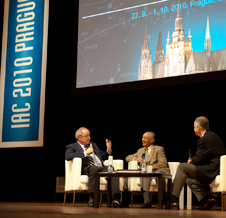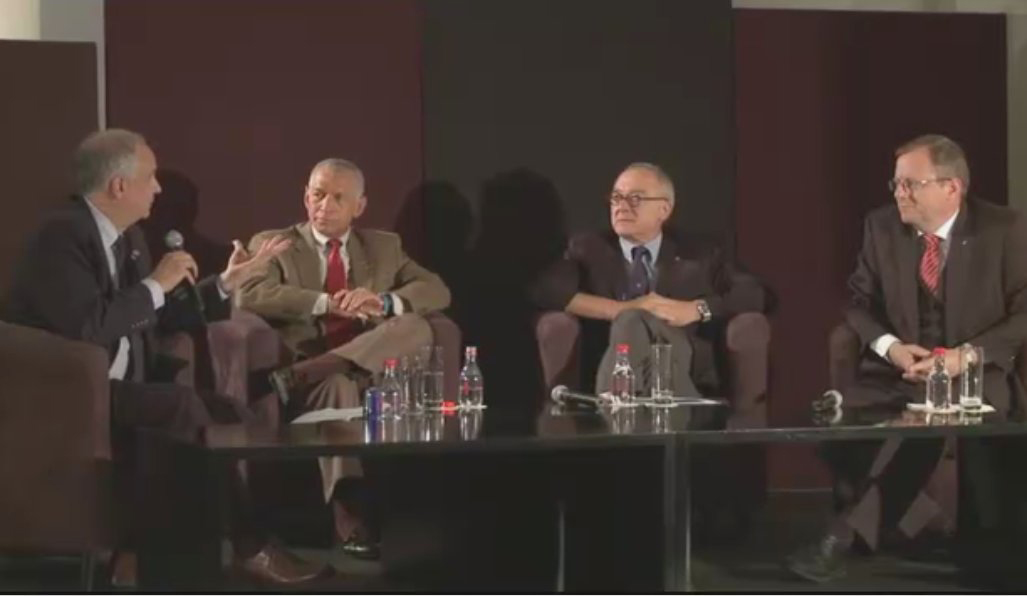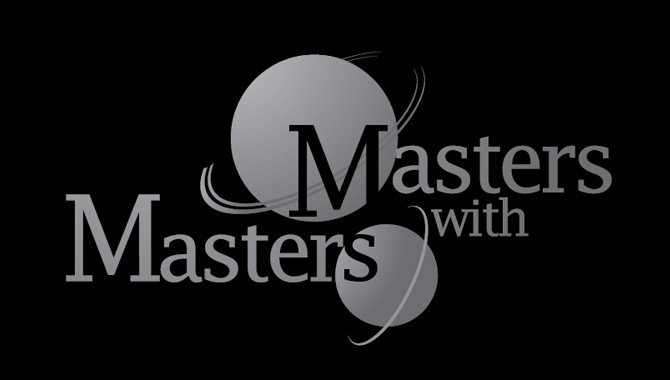October 29, 2010 Vol. 3, Issue 10
NASA Administrator Charlie Bolden and European Space Agency (ESA) Director-General Jean-Jacques Dordain shared reflections and stories in a special Masters with Masters program.

Jean-Jacques Dordain, Director-General of ESA, and Charlie Bolden, NASA Administrator, participate in the Masters with Masters knowledge-sharing session at the International Astronautical Conference in October 2010. Photo Credit: ESA/S.Corvaja 2010
Bolden and Dordain traded ideas about international collaboration and fielded questions from the audience in a lively discussion moderated by Academy Director Dr. Ed Hoffman at the 61st International Astronautical Congress in Prague on September 28, 2010.
Dordain emphasized that cooperation among space agencies is strengthened by personal relationships. “Behind any cooperation there are people. The personal relationship is very important. Yes, there is cooperation between NASA and ESA…but behind that cooperation, there is cooperation between Charlie Bolden and Jean-Jacques Dordain.” He recalled that the first time he heard of Bolden was in the 1980s, when he headed ESA’s astronaut office and Bolden was a NASA astronaut. ESA astronauts who were training in Houston at the time were being excluded from meetings with their American counterparts. “The one who took them by the hand and brought them to the meeting of the NASA astronauts was Charlie Bolden,” said Dordain.
Bolden spoke about collaboration in terms of diversity and inclusion. “Diversity is a difference of ideas, a difference of philosophy, a difference of skills, a difference of geographic background. It’s just differences that makes us strong,” he said. “The inclusiveness means we listen to everyone’s voice.”
Both agreed that competition and cooperation were not mutually exclusive. “We need competition, but provided that that competition is organized to reach common objectives,” said Dordain. “I think that cooperation is to set the common objectives: what are we ready to go do together? I think that is the sense of cooperation. But to reach these common objectives, I think that competition is very healthy.”
“There should be very healthy competition of ideas,” Bolden said. “I think if we ever stop competing for ideas, then we’re dead.”
Audience members posed questions about navigating bureaucracy in complex organizations. Dordain acknowledged that bureaucracy was inevitable within ESA. “When you are working with 18 governments, you have to accept the bureaucracy, but…a significant part of the bureaucracy is coming from a lack of trust,” he said. “You cannot buy trust. You have just to build up trust, and that takes up time.”
Bolden emphasized the importance of being able to compromise. “Many people today…feel that compromise is a weakness, that if you are willing to compromise, then you are not going to win,” he said. “If you are not willing to compromise, in my mind, then you will never win.”
View full-length video of Masters with Masters events.
View clips of the events on the NASA APPEL YouTube channel.







